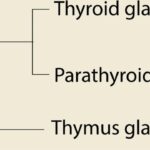Functional heartburn is defined as a recurrent burning sensation localized in the chest that is neither a result of gastroesophageal reflux nor any structural abnormalities. Rather, it arises as a result of increased sensitivity to the nerve endings located in the oesophagus. In the paragraphs below, we will discuss further on this topic: is functional heartburn related to obesity? and also, share the tips on how to prevent functional heartburn in overweight patients.
Conditions related to this, such as functional heartburn, have been reported to have associations with obesity, a condition in which there is excess body fat.
Functional heartburn
Functional heartburn presents with observations typical of acid regurgitation, but there is no reflux of stomach contents into the oesophagus. Rather, the problem is that the oesophagus is simply hypersensitive to physiologic events such as food movement within the stomach.
This makes it very hard to manage, as typical antacid agents for reflux disease may be ineffective in this condition.
General Symptoms
Burning sensation in the chest that is unassociated with food intakePain that continues even when antacid medication is takenSymptom exacerbation by certain activities, foods, or emotionsFunctional heartburn is not the same as GERD (gastrointestinal reflux disease), and the diagnosis and treatment procedures are quite different.
What is obesity
Obesity is a long-term illness and condition that allows the deposition of excess fat in the body, and it has negative effects on one’s health. Usually, this is measured employing the body mass index (BMI). Any BMI above the 30-mark herd is deemed obese.
Causes of Obesity
Most notably, the causative factors include heart disease, type 2 diabetes, and issues related to the digestive system. Such a condition worsens the symptoms owing to the increase in pressure exerted in the abdomen.
According to statistics, almost every adult American fits into the category of those diagnosed with obesity. The existence of excess weight carries effects on almost every system in the body, including the digestive system; hence, the relationship between obesity and functional heartburn could be explained.
Is Functional Heartburn Related to Obesity: The Connection
Functional heartburn is not caused by obesity; it, however, puts one at risk of suffering it due to the following reasons.
- Intra-abdominal pressure: When one is overweight, and particularly having a large waist circumference, increases the pressure within the stomach. This pressure can cause stomach contents to agitate and even rise to the oesophagus, which can irritate the oesophagus.
- Dietary and lifestyle habits: There are certain macronutrient compositions of diets that are commonly associated with obesity and can result in functional heartburn: Large, cumbersome meals that impede the digestive processes that are high in fat and sugar might eating or eating and then supine position very quickly after a meal.
- Inflammation and hormonal dysregulation: Obesity causes chronic inflammation, which is considered low-grade. This inflammation may be capable of leading to irritation of the oesophagus, thus rendering it hypersensitive. Also, such hormones controlling the appetite, like leptin, which is produced in excess body fat, and ghrelin, which comes after eating, may modulate the way the oesophagus reacts even to ordinary stimuli.
Other Risk Factors That Aggravate Functional Heartburn
- Although obesity is linked to functional heartburn, other conditions can worsen it, especially in overweight people.
- Causative Factors: You are likely to suffer from diabetes, asthma, anxiety, and other forms of these disorders.
- Pharmaceuticals: Analgesics, anti-depressive drugs, and hypertensive agents can all cause harm to the lining of the oesophagus.
- Socio-demographic variables: Engagement in smoking, drinking, and lack of physical activities are exacerbating functional heartburn. Identifying what agitates these symptoms is a fundamental step in improving the effectiveness of management interventions.
Assessment of Functional Heartburn in Overweight Patients
It is not easy to assess functional heartburn, especially for overweight patients, as it has a similar presentation to reflux and other gastrointestinal disorders. Some of the common tools used for diagnosis include
- Esophageal pH Monitoring: This procedure evaluates the pH of the oesophagus to exclude the presence of gastroesophageal reflux disease.
- Manometry: This test determines the functional ability of the oesophagus and its muscles
- Endoscopy: This involves the examination for any inflammation, injury, or structural changes. Thus functional heartburn is diagnosed only when all such abnormalities are excluded and no evidence of acid exposure is found on the above tests.
Managing Functional Heartburn If You Are Obese
Having functional heartburn when you are obese is a challenge requiring a multipronged approach.
- Emphasize weight loss
Research shows that even if a person loses a small percentage of his or her body weight, the distress resulting from stomach pressure is relieved and symptoms are improved. Losing weight gradually through a healthy, balanced diet and regular physical exercises is the best option.
- Dietary modification of some foods tends to provoke functional heartburn more than others, particularly among the obese population. Do not consume such food items as hot spices, greasy food, or high-acid content food. Reduce meal portions that take up space in the intestines. Stop amenity consumption of foods for at least two hours before sleep.
- Application of over-the-counter agentsFunctional heartburn is generally unresponsive to conventional heartburn medication; however, short-term relief may be achieved by the use of antacids or alginates.
- Include stress management. Stress is a major contributor to functional heartburn and its symptoms. Mind-body practices such as yoga, meditation, or deep breathing exercises may be beneficial.
- Don’t hesitate to ask for help. If all aspects of modification have been tried without success, your doctor may prescribe oesophagal desensitizing medications or may send you to a gastroenterologist for further assessment.
Tips for Preventing Functional Heartburn
Simple adjustments can help you lower the chances of getting functional heartburn.
- Mind the Size of Your Meals: Don’t get too full, especially not at dinner. Move: Doing any physical activity helps digest the food and prevents unnecessary weight from being gained.
- Strategize your sleeping positions: Prop your head while asleep to minimize the symptoms during the night.
- Limit Foods and Drinks that Contribute Symptoms: Caffeine and alcohol are examples of such foods and drinks.
- Do Not Smoke: Smoking increases the chances of getting heartburn because the oesophagus is irritated by the smoke. However, even the smallest of consistent changes can greatly improve your digestive system.
Read also: Can Diabetes Take Vyvanse?
When to Schedule an Appointment with a Doctor
You should see a doctor if you need help. There is an occurrence of heartburn that continues even when medications purchased over the counter are utilized. You have trouble bringing food down, vomit a lot, or both of these problems are happening in your case.
You have unintentional weight loss, or you are chronically tired, and you do not know what could be the problem. Symptoms interfere with your sleep and your activities during the day. A doctor can assess your complaints and ascertain if you have functional heartburn or something else entirely.
Frequently Asked Questions
- Is functional heartburn associated with obesity?
Although there is no direct evidence of the relationship between functional heartburn and obesity, this condition makes functional heartburn more likely as it puts pressure on the stomach and affects the responsiveness of the esophagus.
- What is the significance of weight reduction in the management of functional heartburn?
Losing weight helps in relieving pressure exerted on the abdomen and the oesophagus, reducing the abdominal member over time and hence promoting relief from symptoms.
- Any particular foods that you are restricted from eating due to functional heartburn?
Yes. Some of the most important foodstuffs include the following: hot spices, fats, sour fruits, drinks containing caffeine, and alcoholic beverages.
- Who is at risk for functional heartburn?
It may become persistent, but lifestyle modification, stress management, as well as, in some cases, medication, can all help alleviate the symptoms.
- How can you tell if you suffer from functional heartburn instead of GERD?
Functional heartburn is a physiological acid in the oesophagus and does not involve regurgitation or acid reflux. It can also be diagnosed as functional heartburn if the first-line medications for gastroesophageal reflux disease do not help. This requires a doctor’s attention for an accurate diagnosis.
- Is functional exercise heartburn worse with physical activity?
Activity triggered by abdominal straining, such as heavy lifting or vigorous abdominal exercises, may provoke symptoms. Walking or swimming are low-stress activities that can be done instead.
Conclusion
Functional heartburn may be associated with obesity on an increased abdominal pressure, inflammation, and lifestyle basis. If obesity is felt to be responsible for these symptoms, concentrate on small changes in the diet, activity level, and stress management that can be made with the beginning of treatment.
Early treatment and trifling measures of prevention would be very helpful in averting these symptoms. Any persistent or worsening symptoms should be evaluated by a qualified health provider. Overcoming functional heartburn is essential to enriching one’s life.



